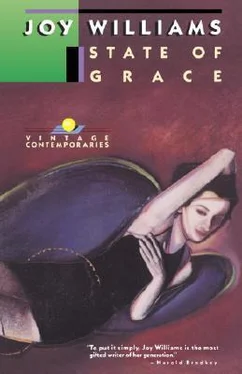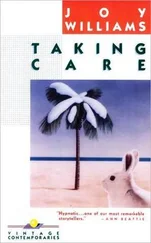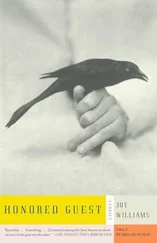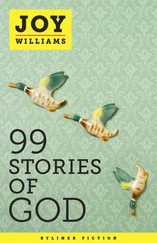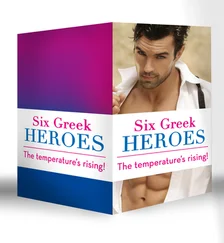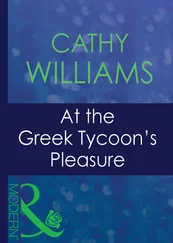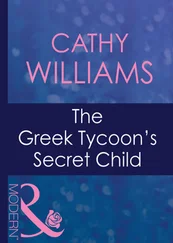“Evil suckled you,” her mother said. “You’d never take my milk. He would never let me touch you really. I wanted to, you were my baby. But he took you the moment you were born. The doctor couldn’t stop him. He took you and cradled you and wiped the blood from your eyes. He was covered with you. I was disgusted, embarrassed. He was covered with the wetness and the slime of you. No one could stop him. He bathed himself in you. You were seconds old and a terrible chill came over me, a premonition. Such cold! I knew that a terror had been delivered of me. And you remain still, don’t you? Nothing touches you.” She did not move away from Kate, intimating by neither gesture nor pause, the crowd, the tree and the old car she’d been driving and would never drive again, her life from that moment on until the end of it, being tractless and impassable. She stroked Kate’s hand gently, at odds with the words, a mother still, “that innocent and loving child over there is gone. He told me, ‘You’ll only destroy yourself. ‘He told me, We’ll go our own way.’ And he was right, wasn’t he! I’ve destroyed the only person who ever loved me.” She shook Kate’s arm. Her lips were almost resting on Kate’s own. “I know all about him, little girl, though you’d like to think I don’t. And I know you too, and your sly cute ways. Daddy daddy daddy , it’s made me sick for years!” She lowered her voice, though she had never actually been shouting. “I won’t scream. I’m not going to do anything that will make me seem to be the guilty party. I’m not the guilty party, I never have been.”
The phrase had swum up in little Kate’s head. She had heard almost nothing of what had been said but now she thought of a dreary hall, riddled with black and brown crepe, tables of disgusting food, broken toys, cowering chicks and kittens and rabbits in fetid boxes, and everyone there, all the children, weeping, blindfolded and in chains.
“YOU’RE SICK,” she said to Kate. “You must be helped.” She stopped, breathing shallowly, drawing back a little. She examined Kate who sat mutely, looking through the windshield. Whose child was this now? Where had all this time taken her? Why had it taken so many years to arrive? And the other child, lost now. Had she ever truly been beside her, all that time before this time, present beside her all those years and chattering dearly, her death existing before her life had begun?
Confused. She felt herself becoming confused, lightheaded. Shock, she thought. I’m going into shock. I am aware of that, she thought.
“Sick,” she repeated with effort. “Don’t you think I know what’s going on? And yet it was only today that I found the strength to act. It was as though at last I had roused myself from a drug. His drug. I had at last shaken it off but too late. Hours too late after years! But today I had a plan. It was so simple, so right. We were just going to leave. I was going to take her away, my poor dear little lost …” Her fingers fluttered feebly and momentarily at her lips. “She didn’t know about any of this. She never saw — I shielded her from it as best I could but today I faced it at last. I knew I couldn’t go on. It was up to me to save her, to get her away. We were going to run away and you would have been dead to her. There would be nothing in her life to remind her that she had a father or a sister. I tried to make it sound like fun to her, an adventure. ‘Just the clothes on our back,’ I’d said. ‘We’ll live in the mountains. Like Heidi,’ I’d said. She was worried about friends. Oh, she would always have friends. She was like that. She never lacked for friends or happy times.”
She looked at Kate as though she were making some final plea to a cool and inquisitional power. Two policemen reluctantly approached. “Yes.” She waved to them with an uncertain gesture. “Yes, yes.” Kate looked through the windshield. “There’s no reason for me to go now,” her mother said. “My reason is gone so I’ll stay. I’ve never been strong but I’ll stay and take whatever Jason’s God is preparing for me.” Kate gave a start. Her father’s name was so seldom mentioned. She stirred in the dusty seat.
“It’s a personal God, Jason has, belonging just to him. That’s always been clear. Viciously clear. I’m not strong but I’ll stay now. I’ll stay and I’ll fight. I’ll fight you,” she said. “Yes,” she said to the policemen and walked back with them to the ambulance.
Kate thought of her sister. Once her sister had given her a pin with Kayo on it. Once she had given her a tiny book of drawings of Woody Woodpecker. The pages were stapled together at the top. You thumbed them rapidly and they became a little movie — Woody Woodpecker rescuing a kitten from a tree. She had lost the pin. She had lost the little book. The thought of that made her grievously sorrowful.
BUT THAT TO THOSE WHOM HE GIVES UP TO CONDEMNATION THE GATE OF LIFE IS CLOSED BY A JUST AND IRREPREHENSIBLE JUDGMENT.
At the first allusion to the baby, months later, Kate had been sick. She hadn’t said anything but she had thrown up. She is not so old now but someday she will be older. Surely there is something frightful in this.
The fact that she can be no younger than she is now is one that we don’t have to accept.
When she was first told about the baby, Kate tried to fix the hint, the sign, the foreboding of the disaster and disloyalty that was so complete. It was as though her father had struck her. He seemed more and more like the fanciful fearsome God he had taught her to know.
Kate remembers. She and her mother are in the amusement park once more. It is fall, a few days after school had opened. Her mother had been waiting for her in the schoolyard. They had taken a bus. Her mother had insisted that they go on some of the rides. The air was raw. No one but themselves were in the plywood pit of the mines. Even so, when one donkey was hired, all the others would go with him, pulling their wooden carts. They were all strung together. They wouldn’t be unharnessed until night.
The child remembers … there is a head hanging in a splinter of light until with a shriek it slides along a wire into a basket. Glued to the empty cart rocking before them is a pink sticker, Don’t Follow Me I’m Lost . There is a roar of rocks, of a cave-in, and a stone wall coming toward them at furious speed through the donkey’s ears. A stuffed bear dances round and around in a wire cage, one ear gone, holding a violent bouquet to his plastic snout.
In the daylight, her mother had put her hand on her stomach.
“He’s living right here. He’s being made here.”
The calliope played. The donkey, with a sigh, shuffled in his traces and freed a wide sparkling stream. Kate pulled her fingers away from her mother’s stomach and rubbed them over the donkey’s warm burred head. There was the smell of the tide and of clams and of tomatoes baking on dough. Everywhere there were sputum and paper blowing, religious pictures and the faces of movie stars sliding out of machines.
They walked down to the beach and sat on a bench, watching the green calm sea and the lace curtains blowing in the windows of the old hotels. The child remembers … her mother’s face is extraordinary. A brown vein throbs in her temple. The child cannot look at her mother. She never looked at her, unless she forgot. She never looks at herself either, in mirrors or photographs. She has no interest in it. An old man walked in front of them. He wore a tight brief bathing suit. His limbs and chest were brown and oily. He was very old. Kate watched him and he in turn looked at them curiously. The teeth in his mouth were like kernels of corn.
She remembers … wishing that the old man would take her mother’s hand and walk away with her, into one of the decaying hotels. The man looks as though he might do something like that, if requested. In one ear, he has a ball of cotton.
Читать дальше
